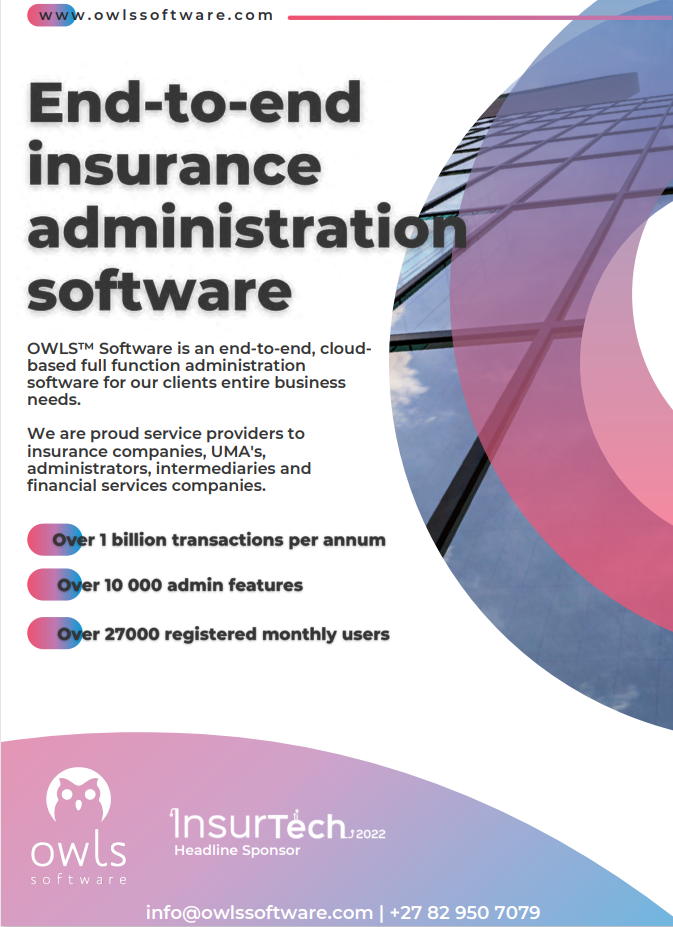By: Karen Rimmer, Head of distribution at PSG Insure
These are the implications for short-term insurance
The short-term insurance industry is constantly evolving, with developments in the risk landscape requiring insurance products and services to adapt to changing consumer and business demands.

The pandemic years are a key example of a period in history where the conventional order of business was disrupted.
Abrupt changes like a large proportion of the South African workforce making the shift to remote working, due to COVID-19 lockdown restrictions, gave rise to new risks which needed to be taken into account by advisers and insurers.
In the wake of the pandemic, many companies amended their approach to work, allowing employees to either work fully remotely or via a hybrid system. This has left many employers and employees with questions regarding how working from home affects the nature or level of their insurance cover. Similarly, entrepreneurs who run their businesses completely from home also had questions pertaining to the insurance of their personal assets that are used for business purposes.
Determining which party bears the burden of risk
The most important distinction to be made is determining which party carries the burden of risk when employees work from home versus when entrepreneurs run a small business from their homes.
In the case of the former, when employees use equipment that belongs to their employers, such as laptops, mobile phones or printers, the employer will be responsible for the insurance cover on these items. It’s important for workers to check whether their equipment is adequately insured by their employers and whether there are any workplace policies that relate to how the equipment should be safeguarded in transit or stored. It is also the responsibility of the employer to ensure the insurer is notified of any changes to the risk address if employees are making use of any company assets, such as printers or desks to work from home with.
Personal insurance and remote working
In the event that employees use their own, personal equipment for work purposes, these items can be insured as part of a home or all risk policy. Albeit not essential, policyholders can inform their insurers that they are using their equipment for both personal and business purposes.
For the most part, working from home requires no material changes to the way personal insurance policies are structured. In the case of entrepreneurs who have decided to run their businesses from their homes, a number of considerations need to be made.

OWLS™ Insurance Software
Proud providers to insurance companies, UMA’s,
administrators, intermediaries and financial services companies.
Business insurance for small business owners with home offices
There are significant advantages of taking out business insurance for entrepreneurs who use their homes as offices.
A business insurance policy will cover work-related risks that may not be covered under a personal policy. This includes any third-party liability claim that may arise if a client or colleague visiting the business owner at their home is injured on the premises.
Entrepreneurs who run their businesses from home could also benefit substantially from including a cyber risk insurance product as part of their business policy. This is particularly important for South African SMEs that store customer data, given that the country is among the most prominent “cybercrime hotspots” in the world.
Those who collect and store large quantities of client data on their personal devices or in the cloud are particularly vulnerable to this kind of risk and need to make provisions for protecting themselves both in terms of having a policy as a safety net and implementing good “cyber hygiene” practices.
The added risks associated with loadshedding
South African remote workers and home business owners are also vulnerable to the unique risks that are associated with loadshedding. Cover for alternative energy products like solar energy systems, generators and inverters that have been purchased for use at home will fall under a personal policy. The fact that the employee works from home or runs their business from the premises will have no bearing on their personal policies.
However, in both instances, policyholders need to ensure that they understand their responsibilities in terms of safeguarding their premises from any potential damage that can result from rolling blackouts.
This may include taking measures such as installing surge protectors on all power outlets or within the main distribution board, ensuring that they have obtained compliance certificates for the home’s electrical system and that fire safety precautions are taken into account.
If you are unsure about which cover will be more appropriate for your specific set of circumstances, contact your insurance adviser to discuss the options that are available to you.

